| Re: Fashola Commissions Oba Lateef Adeyemi Housing Estate. PIC by ntyce(m): 1:16pm On Jul 22, 2014 |
I must say that I am really impressed.
Amosun is building something similar in Abeokuta, 250 units.
But Fashola should be Governor-General of Nigeria.
Other Governors need to learn from him. 7 Likes |
| Re: Fashola Commissions Oba Lateef Adeyemi Housing Estate. PIC by Gbawe: 1:22pm On Jul 22, 2014 |
ntyce: I must say that I am really impressed.
Amosun is building something similar in Abeokuta, 250 units.
But Fashola should be Governor-General of Nigeria.
Other Governors need to learn from him. Amosun is another seriously impressive administrator. The best administrators today are those who deliver for the people despite the challenges of governance in Nigeria. The worst leaders are those who have nothing at all to show for the time and resources they have gained to make a difference. 4 Likes |
| Re: Fashola Commissions Oba Lateef Adeyemi Housing Estate. PIC by Nobody: 1:38pm On Jul 22, 2014 |
Wow! I'm impressed by what I'm seeing here. May God bless Fashola, and may God bless Lagos State. 2 Likes |
| Re: Fashola Commissions Oba Lateef Adeyemi Housing Estate. PIC by after1: 1:43pm On Jul 22, 2014 |
Sincere9gerian: Good development. However, we need details as to the capacity and cost of these housing estates. If individuals can erect 4 or 5 storey buildings in Onitsha, it should be expected that a state govt that earns over N30 billion monthly income should be able to do that on a MASSIVE scale at subsidized cost. Hypocrite. You would have call people HATERS, ENEMY OF PROGRESS, APC, TINUBU, ABOKI if they ask similar question on your PDP propagandist thread. You are part of the problem of this country, anyone that share different opinion from yours is either APC, Aboki or Tinubu. We cant hold reasonable discussion on this forum without you PDP/APC paid agent turning it around to something else. Pathetic. 6 Likes |
| Re: Fashola Commissions Oba Lateef Adeyemi Housing Estate. PIC by EkoIle1: 1:46pm On Jul 22, 2014 |
Lekki peninsula 2. 3 Likes 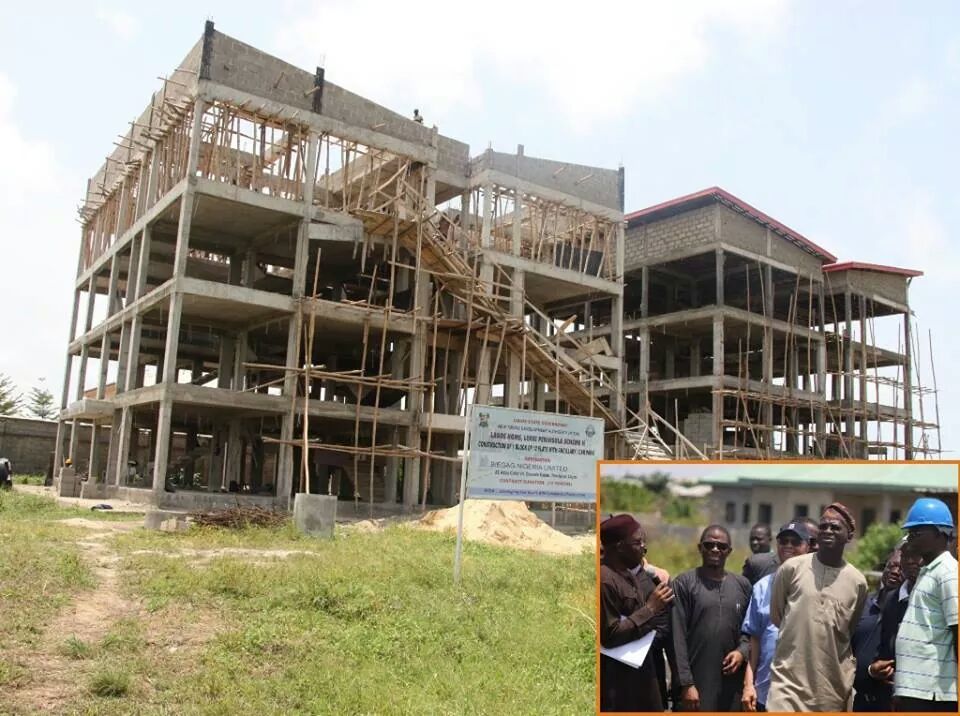
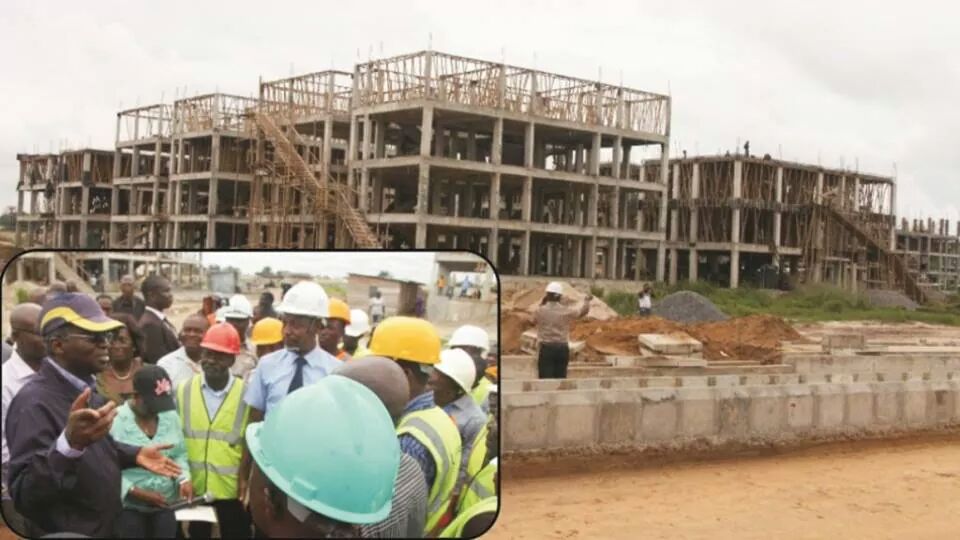
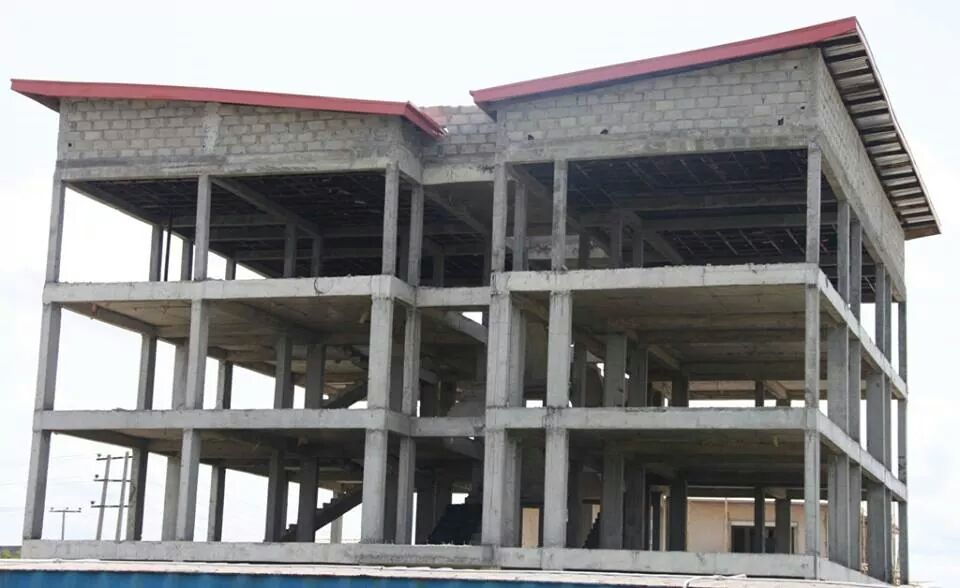
|
| Re: Fashola Commissions Oba Lateef Adeyemi Housing Estate. PIC by Madawaki01(m): 1:49pm On Jul 22, 2014 |
#FashPlsBeOurPresident
.
Make it go viral 4 Likes |
| Re: Fashola Commissions Oba Lateef Adeyemi Housing Estate. PIC by EkoIle1: 1:52pm On Jul 22, 2014 |
New town development authority. Ajara, badagry scheme. 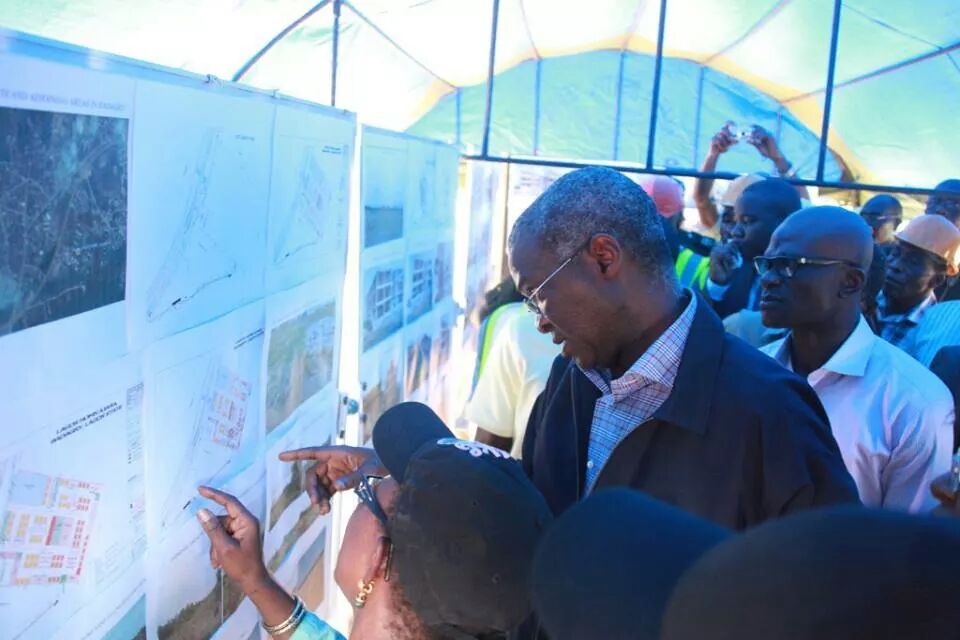
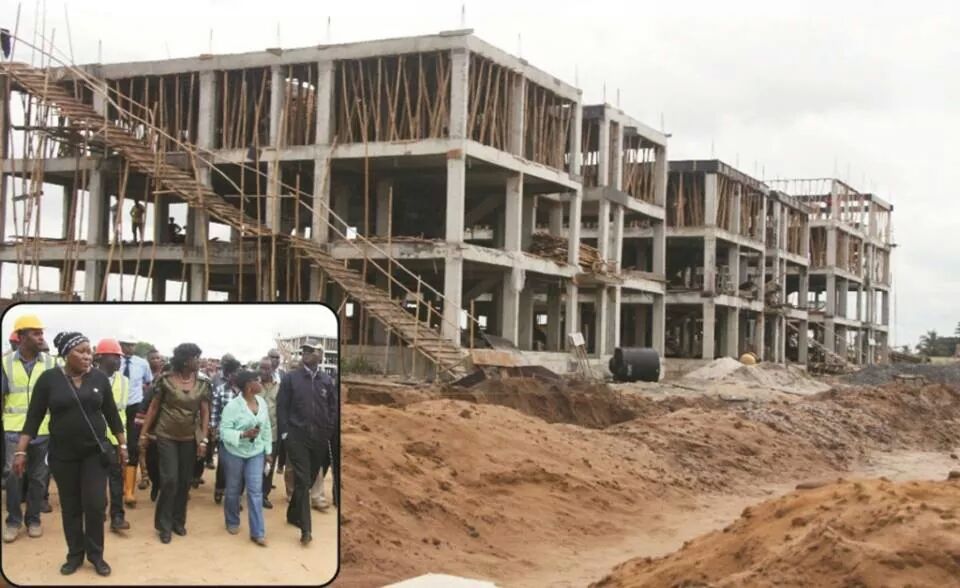
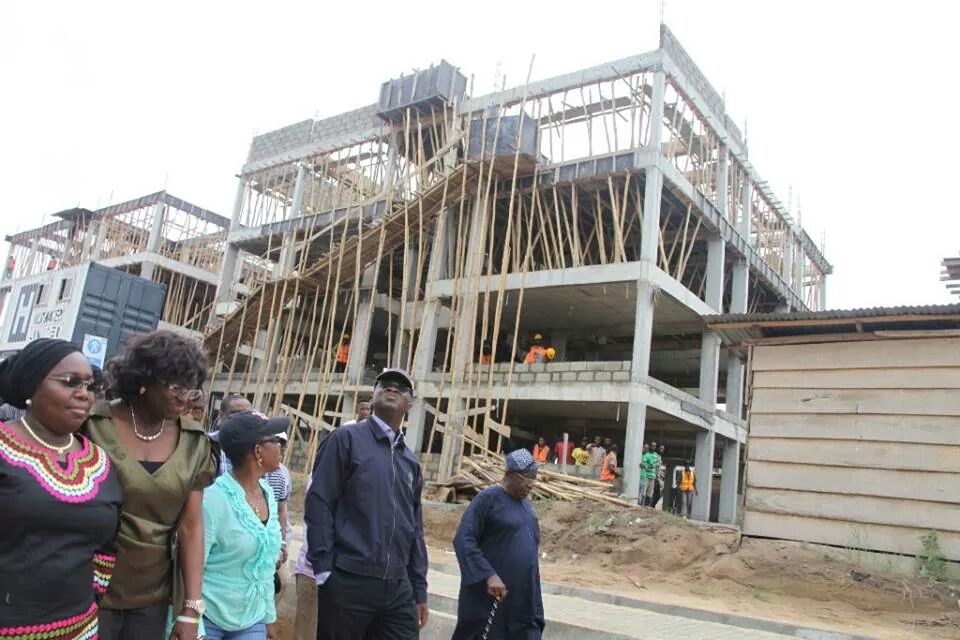
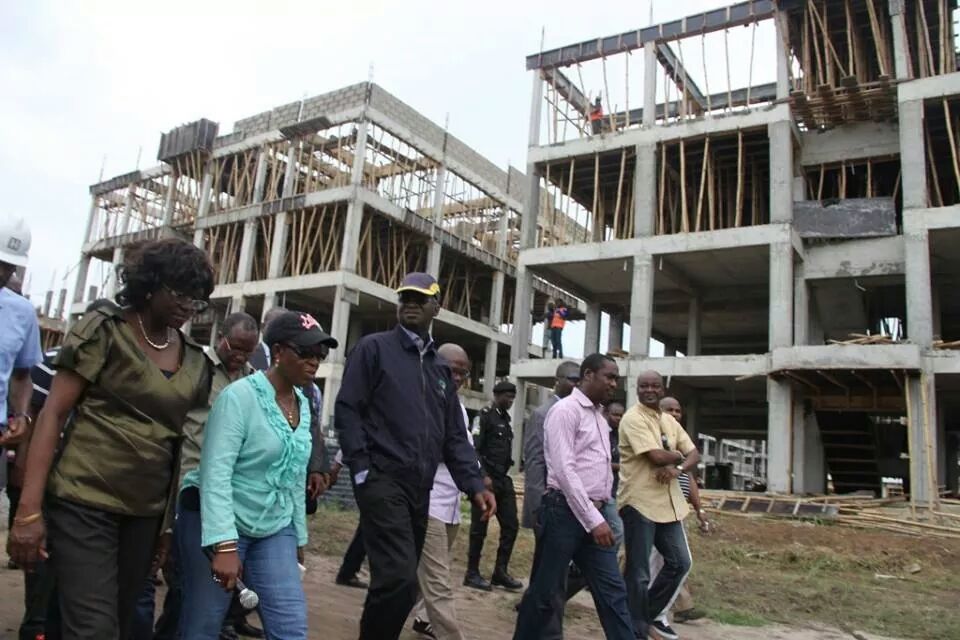
|
| Re: Fashola Commissions Oba Lateef Adeyemi Housing Estate. PIC by EkoIle1: 1:58pm On Jul 22, 2014 |
Isheri stadium and recreation center. 2 Likes 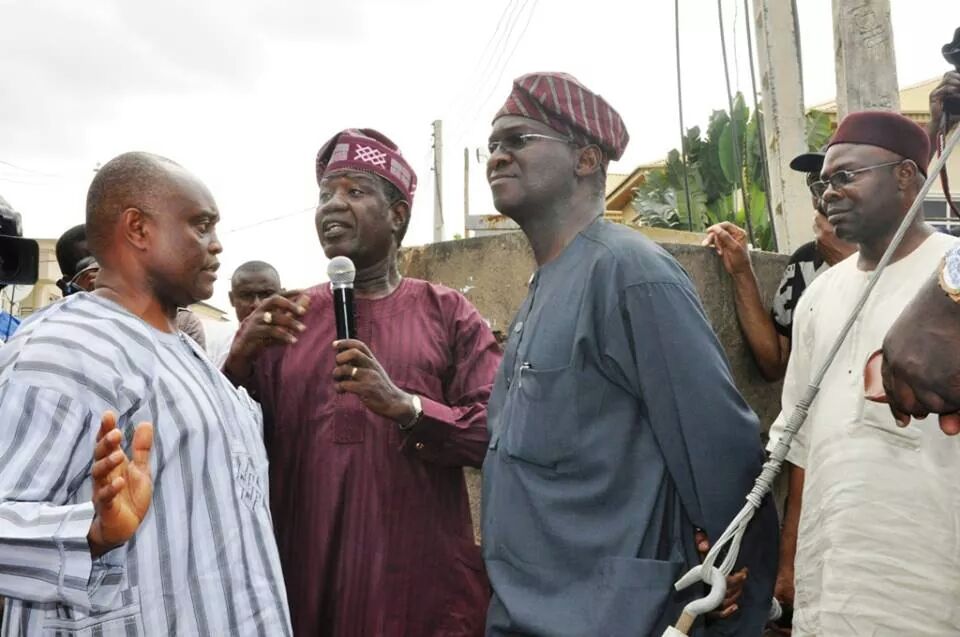
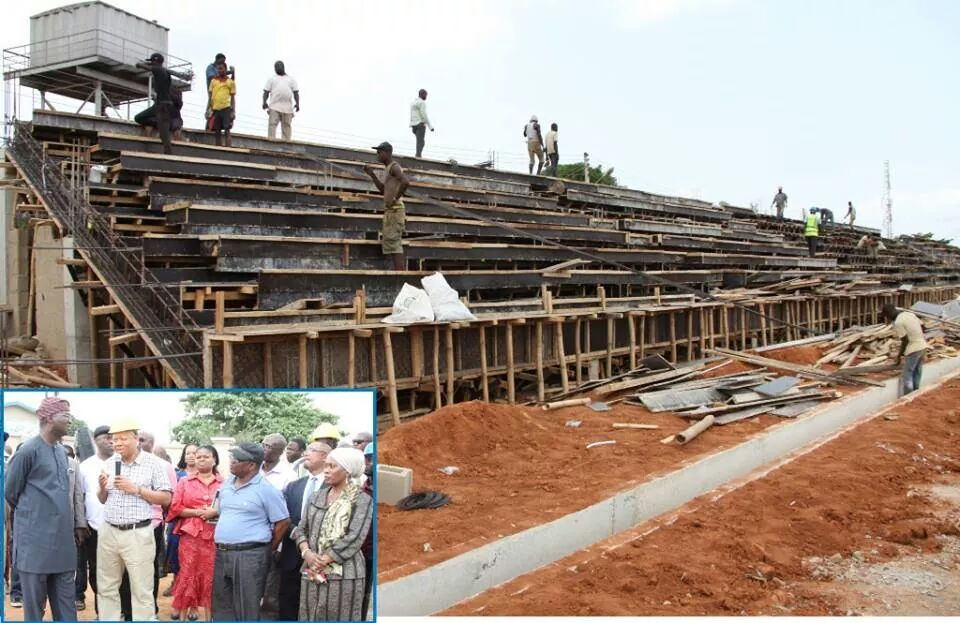
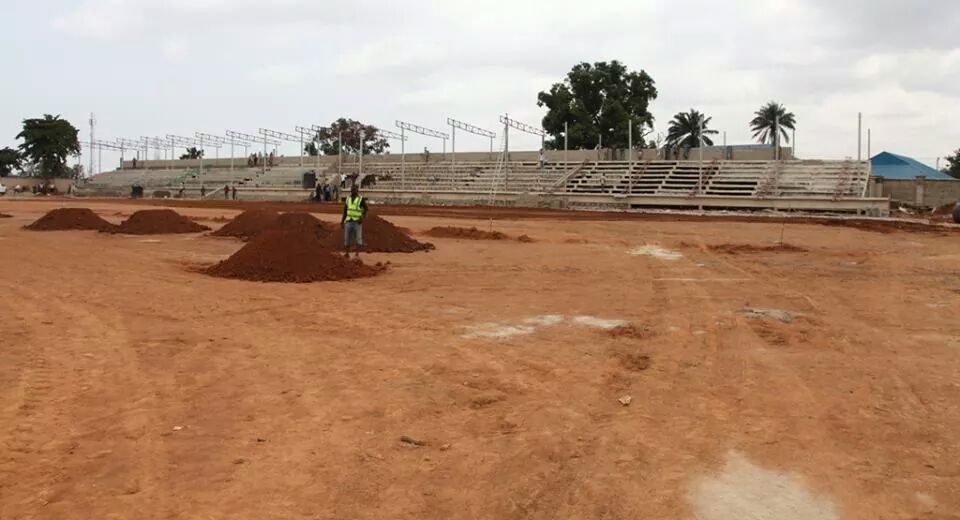
|
| Re: Fashola Commissions Oba Lateef Adeyemi Housing Estate. PIC by Gbawe: 2:03pm On Jul 22, 2014 |
Aigbofa: Wow! I'm impressed by what I'm seeing here. May God bless Fashola, and may God bless Lagos State. Bros forget. Real Lagosians who love Lagos unreservedly know the impressive difference Fashola has made everywhere and in virtually every sector. 2 Likes |
| Re: Fashola Commissions Oba Lateef Adeyemi Housing Estate. PIC by EkoIle1: 2:04pm On Jul 22, 2014 |
LASU library and Senate building...
. 3 Likes 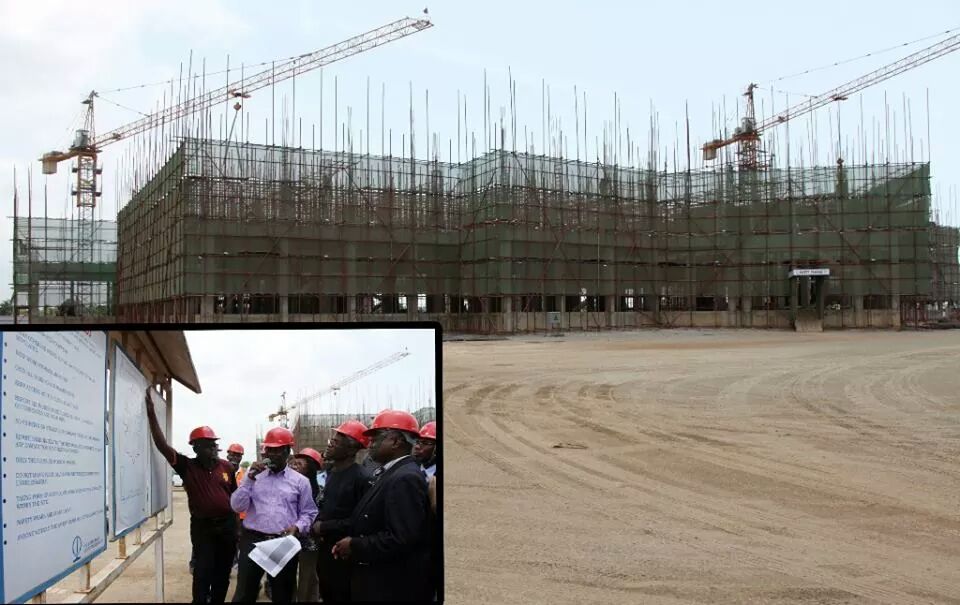
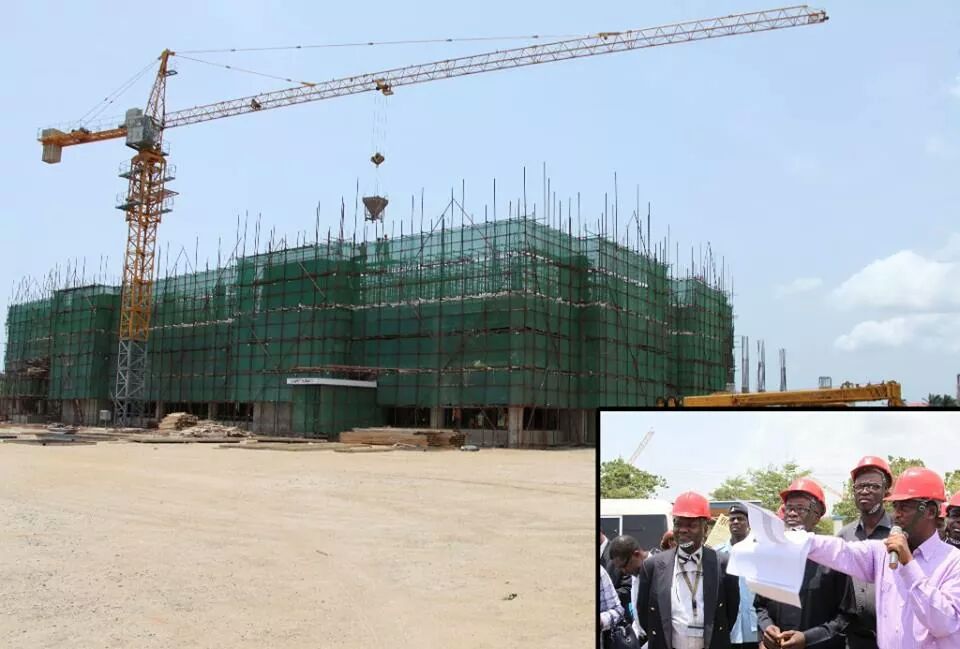
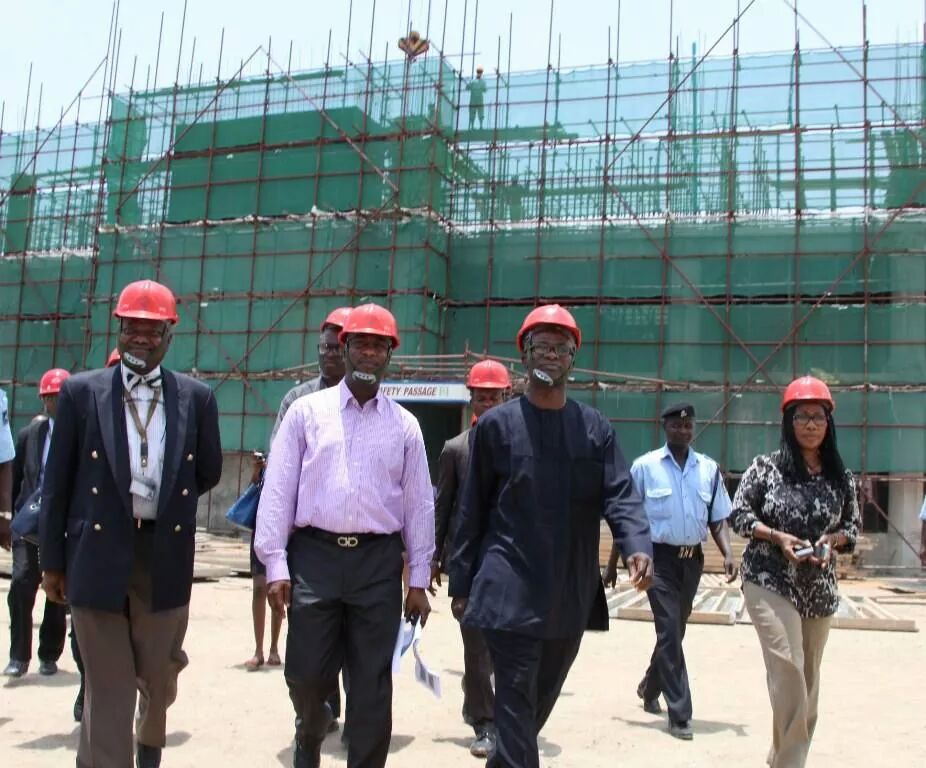
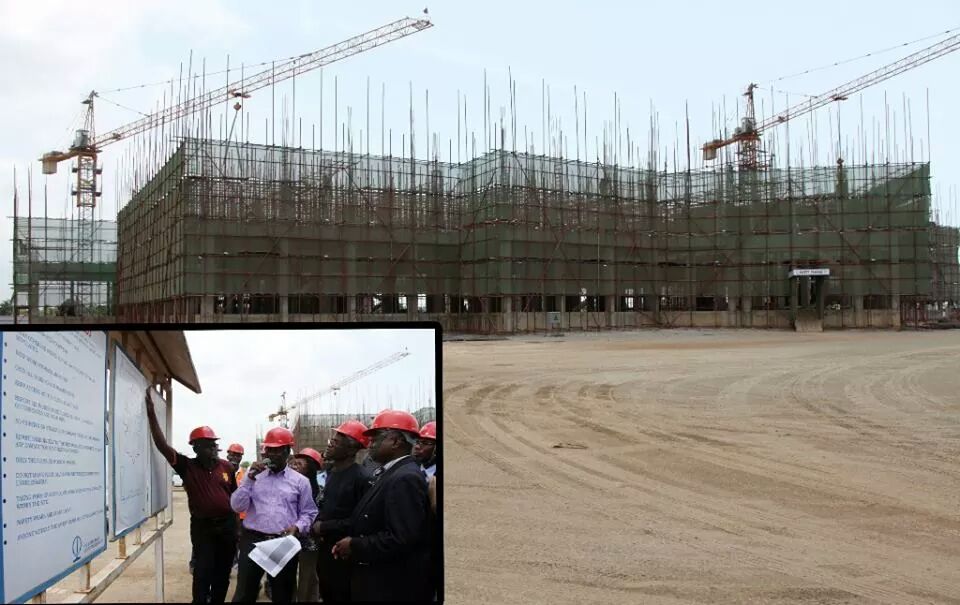
|
| Re: Fashola Commissions Oba Lateef Adeyemi Housing Estate. PIC by EkoIle1: 2:10pm On Jul 22, 2014 |
Commissioning Imota Asphalt Plant.
. 3 Likes 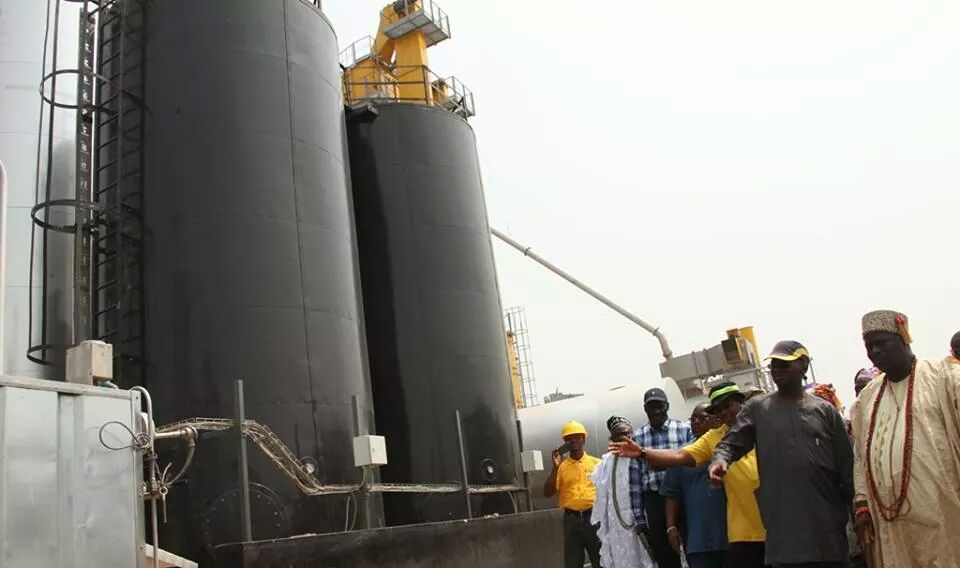
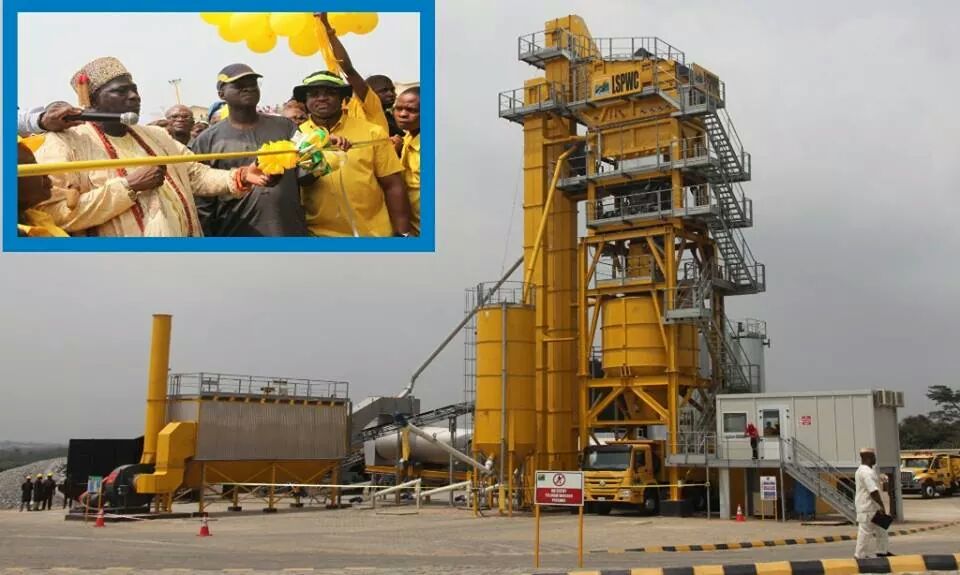
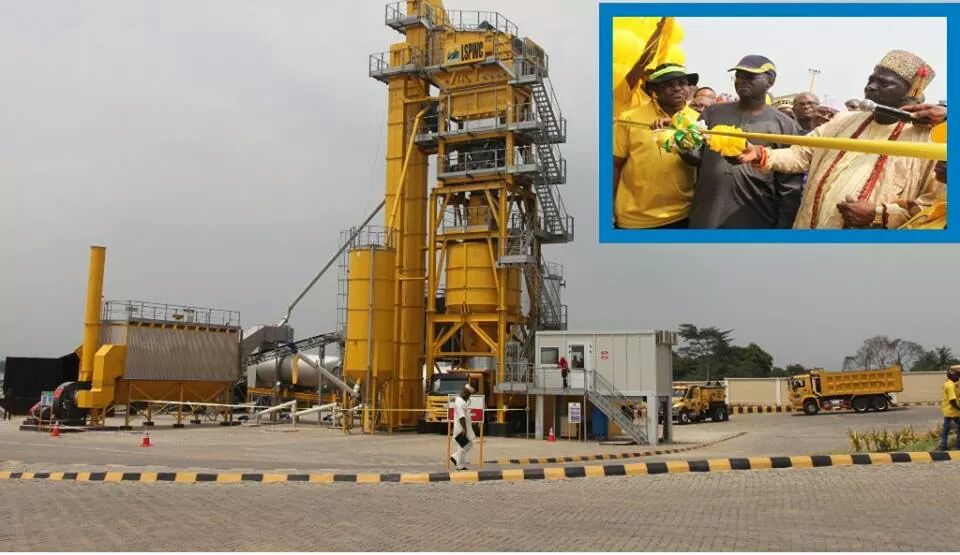
|
| Re: Fashola Commissions Oba Lateef Adeyemi Housing Estate. PIC by EkoIle1: 2:14pm On Jul 22, 2014 |
Abesan waste water treatment plant.
. 2 Likes 

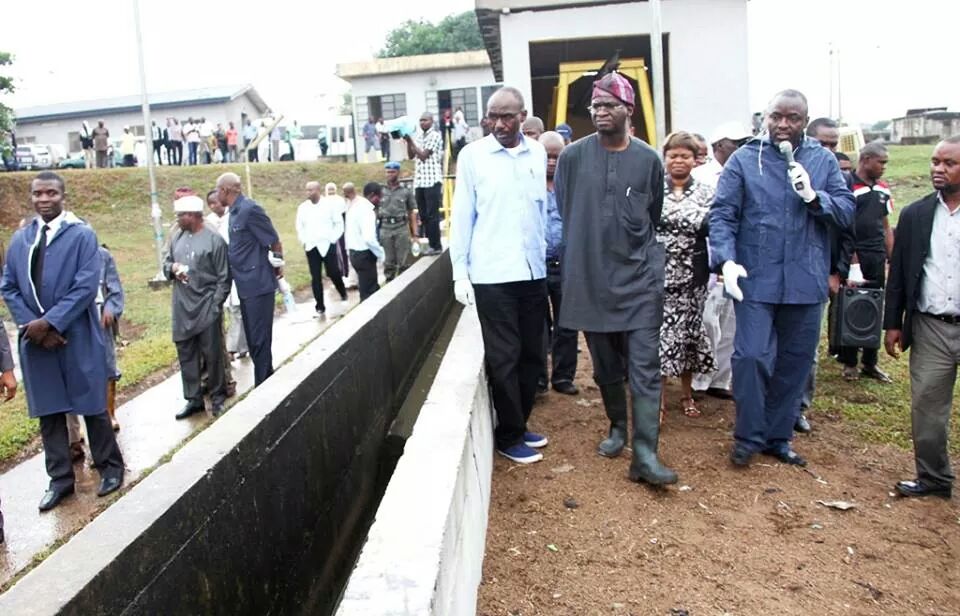
|
| Re: Fashola Commissions Oba Lateef Adeyemi Housing Estate. PIC by Nobody: 2:20pm On Jul 22, 2014 |
EkoIle1: LASU library and Senate building...
. is it? I have been seeing the on-going project in the school but I didn't know what it was. Impressive!  2 Likes |
| Re: Fashola Commissions Oba Lateef Adeyemi Housing Estate. PIC by EkoIle1: 2:20pm On Jul 22, 2014 |
Ikorodu housing scheme inspection.
. 1 Like 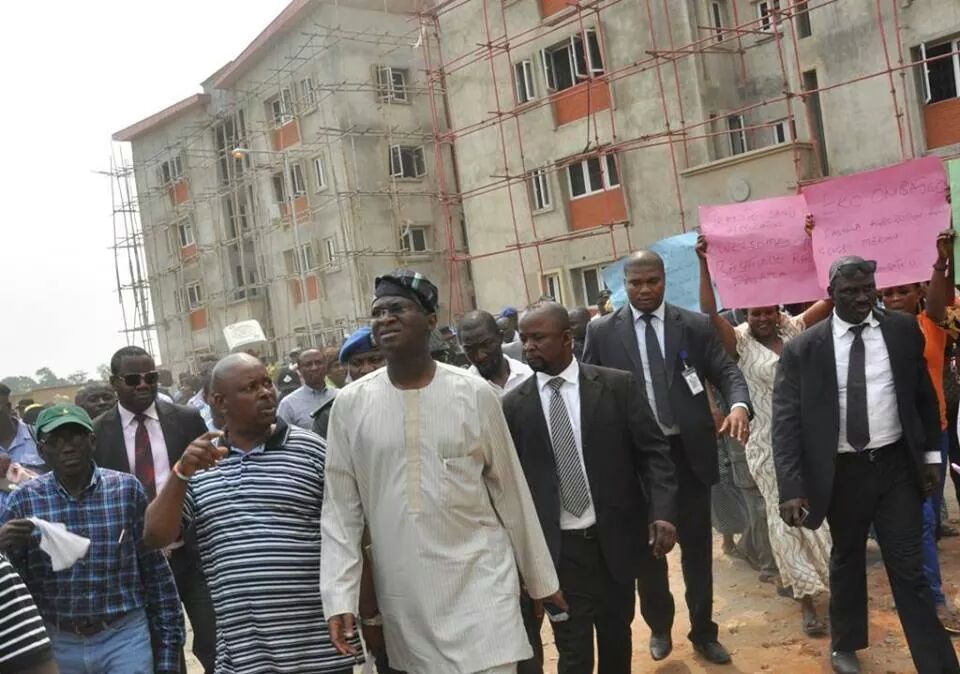
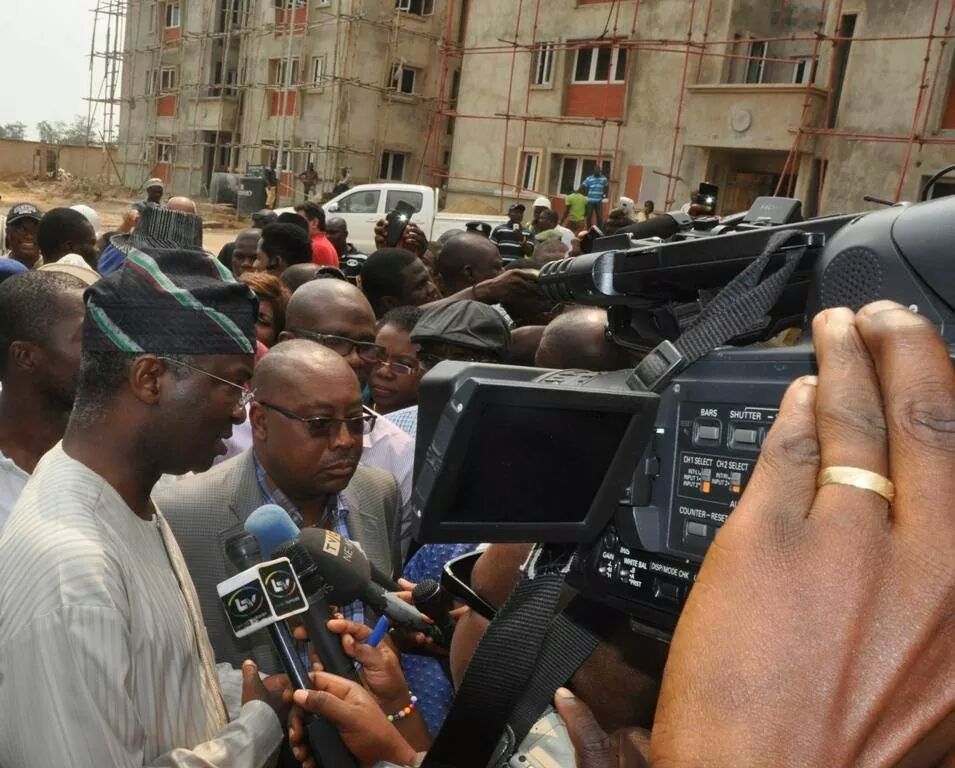
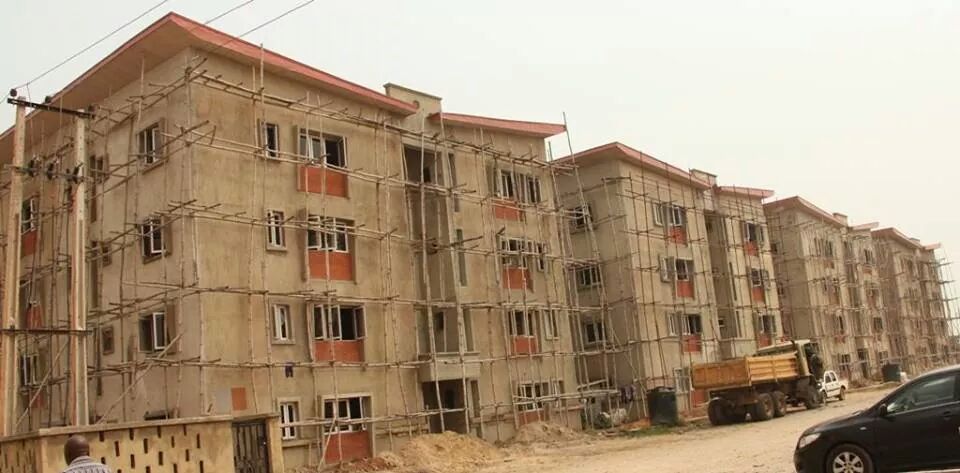
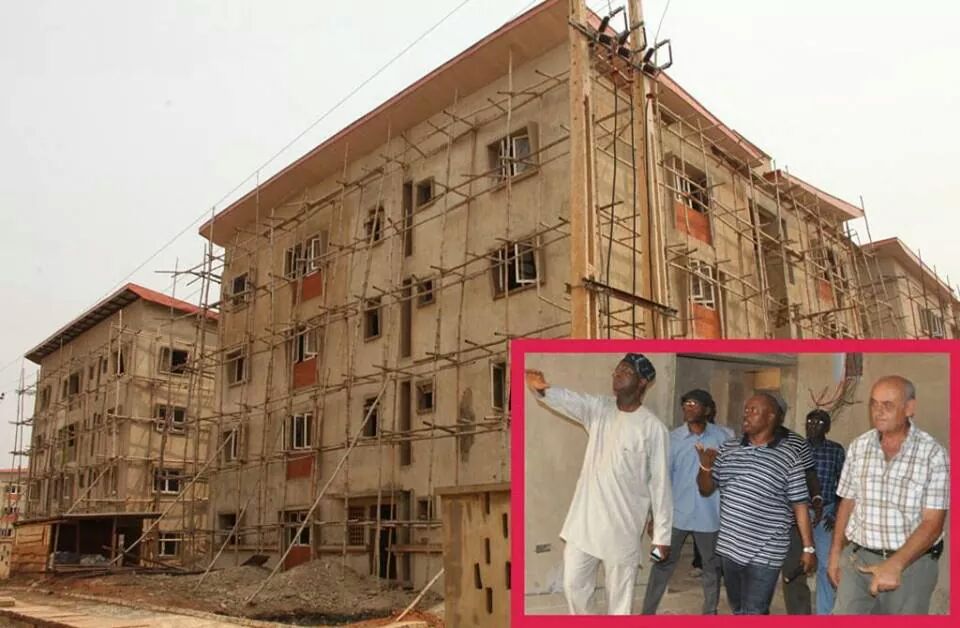
|
| Re: Fashola Commissions Oba Lateef Adeyemi Housing Estate. PIC by EkoIle1: 2:23pm On Jul 22, 2014 |
berem: is it?
I have been seeing the on-going project in the school but I didn't know what it was.
Impressive!  With the upgrades going in, LASU is destined to be a top 5 University in Nigeria, its just a matter if time.. Fashola is not playing. 2 Likes |
| Re: Fashola Commissions Oba Lateef Adeyemi Housing Estate. PIC by Gbawe: 2:35pm On Jul 22, 2014 |
@Ekoile. Bruv, keep up the good work. The entire world , full of intelligent and progressive minds, has identified what Fashola and even Tinubu have done to turn Lagos round and position it as the leader of the modern era of African Nation-States defying the maladministration of clueless and weak central Government to become independently powerful centres of socio-economic strength and progress. We know those, because of their hateful disposition, who will continue to have contrary opinion to that held by a world happy to highlight and celebrate progress and development wherever such is seen and regardless of who/what is responsible for delivering laudable socio-economic growth. Some illiterates and empty braggarts will come here shouting they "developed" Lagos, when such is mysteriously not possible for the States in their own region of origin, whereas the article below makes it crystal clear that it is effective leadership, which knows no ethnicity, allowing Lagos, Accra et al become the powerfully attractive Nation-State entities they are today. Eko o ni Baje. In fact, the article below makes it amply clear that "olanrewaju ni oruko keji Eko". http://www.theatlantic.com/international/archive/2013/07/how-africas-new-urban-centers-are-shifting-its-old-colonial-boundaries/277425/How Africa's New Urban Centers Are Shifting Its Old Colonial Boundaries
The continent's booming new economic zones are outstripping the ability of weak central governments to retain their hold on them.
HOWARD W. FRENCHJUL 1 2013, 10:01 AM ET

Heavy traffic on a bridge in the Ikoyi neighbourhood in Lagos on March 27, 2012. (Akintunde Akinleye/Reuters)
Twice as populous today as the next biggest African country, Nigeria, which was cobbled together as a colony 100 years ago, has always stood out on its continent as the most ambitious and in many ways fanciful creation of British imperialism.
First, it was given its name in 1897 by Flora Shaw, a journalist for the London Times, and then run by her eventual husband, Lord Lugard, a former army officer and civil servant who recognized from the outset, even as he unified what had been a hodgepodge collection of protectorates, that its disparate regions had almost nothing common.
Almost from the moment of its independence in 1960, Britain's fractious, artificial concoction has been falling apart, haunted by the twin specters of state failure and breakup.
In the country's first decade, it was riven by the Biafran War, a vicious, ethnically driven bid for secession by its southeasterners that killed 2 million people and still ranks as one of the continent's deadliest civil conflicts.
An oil boom in the 1970s briefly seemed to promise widespread prosperity. Instead, it brought a long period of runaway corruption, military coups, and abysmal misrule that have left 60 percent of the population living under the poverty line.
Civilian government and democracy were restored to Nigeria in 1999, but this has not meant the arrival of competent national leadership, nor to a halt in the procession of crises.
This decade has been marked by the alarming spread of terrorist attacks by Islamic extremists in the overwhelmingly Muslim northern half of the country, and by the rampant piracy of oil, Nigeria's main source of revenue, in the southeast.
But from the perspective of a fast-arriving future, even threats like these to the authority of Nigeria's federal government may soon pale alongside a far more fundamental challenge to national cohesion: Nigeria's phenomenal population growth.
Presently, almost all of sub-Saharan Africa is growing at sustained rates unmatched in modern history. In this regard, Mali, Nigeria's resource-poor and largely desertified West African neighbor, is fairly typical. The United Nations projects that the country, one of the world's ten poorest nations, will see its population rise to nearly 50 million by mid-century from its present base of about 16 million.
Nigeria, a rambunctiously energetic country with roughly twice the area of California, may be on a slightly slower growth path, but its already huge size makes its trajectory far more dramatic. The country's headcount is expected to double from a shade under 200 million today to 400 million by 2050, and by century's end will reach an almost unimaginable 750 million -- more than half the size of China -- according to the UN's cautious median projections.
Given the disastrous nature of so much news from Africa, one could easily expect this to be a story about hellish population bombs. It is not. Rather, it is a look at how booming demographics are fueling economic growth in many parts of Africa, while at the same time radically stressing the continent's political geography.
More specifically, it is a glimpse at how urban centers led by Lagos, Africa's biggest city, are positioning themselves to accomplish what any number of rebel groups and secessionists movements have failed to achieve since the continent's independence era commenced in the late 1950s: redraw a remarkably static political map of Africa, imposed by European imperialists over a century ago.
Here and there already, the continent's biggest cities are spawning enormous urban corridors that are spilling over borders and creating vigorous new economic zones that are outstripping the ability of weak and plodding central governments to manage or even retain their hold on them.
Lagos, which sits in the southwestern corner of Nigeria, sprawled over a collection of islands and swampy coastlands, occupies the leading edge of this phenomenon. Today, its extraordinary growth is driving sweeping changes in a five-country region that stretches 500 miles westward along a band of palm-shaded seaboard all the way to Abidjan, Ivory Coast, a mushrooming city of perhaps six million people that has long been this region's other major economic and cultural pole.
In between them, in one of the busiest staging areas of the historic Atlantic slave trade, West Africa is laying the foundations of one of the world's biggest megalopolises, and in Lagos itself, the start of a potentially powerful new city-state.
With an estimated 18 million people (no one knows for sure) Lagos has grown in size nearly 40-fold since independence, and its expansion is still accelerating. Nigerian demographers estimate that as many as 5,000 newcomers migrate here every day, putting Lagos on track to easily double in size again before mid-century, when it will be a top contender for the title of the world's largest city.
[b]For decades, Lagos suffered one of the worst images of any city in the world, known widely as a place of thieving politicians, streets that crackled with danger, rotting infrastructure and "go-slows," the monstrous, daily traffic jams in which people melt in their seats in the stifling, humid heat while praying they won't be held up at gunpoint by robbers. The city's most famous native son, the late musician, Fela, even coined a shorthand term for the Lagos's litany of hardships: "impossibility-ism."
But with the outside world having almost written it off, Lagos has recently enjoyed a prolonged run of strong economic growth, swelling its GDP to twice the size of Kenya's, the richest and most important nation in East Africa. And while booming like this, Lagos has also begun to quietly develop a reputation for some of the most effective local governments in all of West Africa.
Under the leadership of a succession of ambitious, modernizing governors from the opposition Action Party, Lagos has embarked on an unprecedented construction spree, building freeways, sub-Saharan Africa's first metro system outside of South Africa, and public housing units on a large scale. At the same time, this famously rough place has even added subtler quality of life improvements like the proliferation of public green spaces.[/b]
In a torrential afternoon rain one day, I drove to the seafront of Victoria Island, Lagos's main business and financial quarter, to visit one of the city's most ambitious new developments, a vast real estate project known as Eko Atlantic City. It is an entirely new district will house 250,000 people in high-rise apartment buildings, banks in corporate office towers, other businesses and hotels, and an 18-mile tramway.
With physical space for expansion fast running out, to build it, the city is filling in with rocks and sand 9 million square meters of ocean, an area one and a half times larger than Victoria Island itself.
For now, all that one can see is a vast, flat expanse of sand that stretches to the horizon, its southern border defined by a nearly 4.5-mile long seawall of boulders and concrete tetrapods piled high to hold back the ocean.
Ten enormous dump trucks filled with large rocks rumbled by while I climbed atop the seawall. On average, I was told, 300 of them unburden themselves of their 25-30 ton loads every day.
"Land used to exist here," a guide in hardhat told me, as we stood on the newly packed sand. "It took about 100 years for the ocean to reach that point," she said, gesturing toward Victoria Island's Bar Beach in the distance.
If Lagos alone were growing like this, the disruption it would pose to the region's staid political order would be marginal. But along with the world's fastest population growth, over the next several decades Africa will also experience the highest urbanization rates anywhere on the planet. In this decade alone, cities in West Africa will swell by an additional 58 million people, according to the United Nations.
Between 2020 to 2030, an additional 69 million people will fill out the region's bulging cities, and urbanization rates will continue accelerating like this at least until mid-century.
As a result, demographers foresee the emergence of hundreds of new, full-fledged cities born from what are now modest, faceless towns, as well as many others simply created from scratch that will begin popping to life like stars born from gathering dust in the cosmos.
Most existing cities, meanwhile, will undergo enormous expansion, swelling beyond recognition from what they have looked like only recently. Here and there, new urban corridors will spring up, along the lines of the 50-million strong 400-mile stretch of eastern seaboard between Boston and Washington, D.C., only far more populous.
And this is where Africa's new political geography comes in. A simple tally of the projections for the three principal cities in this corridor, Lagos, Abidjan, and Accra, adds up to a mid-century population of 54 million.
[b]To this, however, one must add places like Ibadan, Nigeria (presently 2 million people), only 80 miles from Lagos, Takoradi, Ghana (500,000 people), and the capitals of what are today sovereign countries, Lomé, Togo (1.5 million) and Cotonou, Benin (1.2 million). Throw in the countless other towns and cities along the way that will be swelling or springing to life, and the foreseeable result is a dense and nearly unbroken urban zone from end to end.
While I was in Abidjan on a recent visit, ground was broken on a multilane highway project that will run eastward along the coast, to Ghana, replacing the familiar old, potholed carriage road that for decades has rambled through brine-swept palm oil plantations.
A few weeks later in Nigeria, I visited an immense new Chinese industrial zone being built on the far eastern outskirts of Lagos, the Lekki Free Zone, a 60-40 joint venture between a Chinese consortium and the Lagos State government that is being promoted as West Africa's answer to Dubai.
[/b]
Even if that seems like a stretch, global energy firms and Chinese manufacturers of everything from furniture and palm oil products, to solar panels and automobiles, have already become early, enthusiastic investors. A Singaporean company, meanwhile, is at work building a deep-water port, which is due to begin operations in 2015, and to the immediate northwest of the zone, a new international airport is also under construction.
Investment in the zone represents a bet that if the government can provide land and labor at internationally competitive rates, along with reliable power supply and streamlined immigration and customs formalities, foreign investors will flock to the area. Their aim would not only be to manufacture things for export to faraway markets, but to take advantage of the emerging West African megalopolis's attractive demographics, including high population density and a fast-rising middle class.
Arguably the most important of that city's recent mega-projects is the Badagry Expressway, a newly opened, ten-lane road and rail corridor that will soon push onward to the nearby border with Benin.
Far more than a simple road, the highway is the physical embodiment of the politically transformative integration to come -- think the I-95 of West Africa. At some point before long, it will merge with the highway being built eastward from Ivory Coast, perhaps somewhere in Ghana. But even before that can happen, tiny Benin and Togo, countries whose sliver-thin shapes mark them as conspicuous examples of fanciful European mapmaking, will face a powerful new existential challenge.
The most sacrosanct rule of continental politics in the post-independence era has always been the taboo on tampering with Africa's borders, which almost every state has recognized as arbitrary and irrational, and yet equally essential. The Europeans may have consulted no Africans in drawing them up, but to renounce them now would be to open a gigantic Pandora's box, and a recipe for endless, costly conflict.
But now the massive growth of cities in the region points to ways that borders and the nation states they contain can be overtaken or even rendered irrelevant without war or confrontation.
Like that of Lagos, well-managed, democratic Ghana's resource-driven economy is booming, meaning that for Togo and Benin, the two little backwaters sandwiched in between them, hopes of prosperity will increasingly mean hitching their fortunes to those of their far larger neighbors. This will steadily force French speakers in these countries to opt for English, at a minimum, as the language of business and opportunity. And the switch of colonial languages is likely to be merely the first step toward unprecedented integration.
In fact, many see Lagos's creeping interpenetration of Benin as being already well under way, pointing to a 2003 incident as an important milestone. It involved an armed robber from neighboring Benin who attacked a car owned by a close friend of the sitting Nigerian president's daughter. The bandit fled back to Benin to escape arrest, but Nigeria punitively closed its border, which essentially meant cutting off trade with Lagos, Benin's lifeline. Within 72 hours the suspect was arrested and delivered to Nigerian authorities.
"We already have houses on the border where the sitting room is in Nigeria and the bedroom is in Benin," said F.A.D. Oyekunmi, a demographer at University of Lagos. "I think Benin will remain the Benin Republic, but the string of communities that will spring up along the Badagary Expressway, all the way to the border and beyond, will become the nucleus of one new, giant and integrated urban area -- one economy."
The biggest challenge posed by the growth of Lagos and the consolidation of an enormous, sub-regional economic zone around it, however, is not to the city's minuscule neighbors. Rather, it is to Nigeria's continued existence as a unitary nation.
If present trends continue, in another decade or two, Lagos's economy will surpass the size of the rest of Nigeria.
What has held the country together in the past, however tenuously, is the redistribution of money earned from the country's oil exports. But this is changing fast, as Lagos booms and its dependence on this ever more thinly sliced revenue -- what Nigerian politicians call the "national cake" -- dwindles.
"If [Lagos's] GDP continues to rise the way it is, the federal contribution to [the city] could shrink to 5 percent," Folarin Gbadebo-Smith, the director of a leading independent Nigerian think tank, the Center for Policy Alternatives told me in an interview in his stylish offices. "What you would end up with is a virtual country. All of the parameters, absent an army, police and currency of your own, are there. We are good to go."
Not everyone agrees that Lagos can achieve this kind of autonomy through economic change alone. But as strong as it is, growth may only be the second most important challenge the city poses to the nation.
After decades of drift, Nigeria's own people increasingly see Africa's largest country as broken and fundamentally unworkable, perhaps beyond repair. Nigeria is the world's 11th largest oil producer, and yet it imports all of its gasoline -- it does not have a single working refinery. Just as gallingly for Africa's energy powerhouse, most of its citizens live without electricity from the grid 5 Likes |
| Re: Fashola Commissions Oba Lateef Adeyemi Housing Estate. PIC by EkoIle1: 2:37pm On Jul 22, 2014 |
Unemadu:
Who are the beneficiaries? I heard MARTIANS and ESKIMOS... 3 Likes |
| Re: Fashola Commissions Oba Lateef Adeyemi Housing Estate. PIC by EkoIle1: 2:42pm On Jul 22, 2014 |
Gbawe: @Ekoile.
Bruv, keep up the good work. The entire world , full of intelligent and progressive minds, has identified what Fashola and even Tinubu have done to turn Lagos round and position it as the leader of the modern era of African Nation-States defying the maladministration of clueless and weak central Government to become independently powerful centres of socio-economic strength and progress.
We know those, because of their hateful disposition, who will continue to have contrary opinion to that held by a world happy to highlight and celebrate progress and development wherever such is seen and regardless of who/what is responsible for delivering laudable socio-economic growth. Some illiterates and empty braggarts will come here shouting they "developed" Lagos, when such is mysteriously not possible for the States in their own region of origin, whereas the article below makes it crystal clear that it is effective leadership, which knows no ethnicity, allowing Lagos, Accra et al become the powerfully attractive Nation-State entities they are today. Eko o ni Baje. In fact, the article below makes it amply clear that "olanrewaju ni oruko keji Eko".
http://www.theatlantic.com/international/archive/2013/07/how-africas-new-urban-centers-are-shifting-its-old-colonial-boundaries/277425/
Thanks Gbawe. The thing is, nothing is impossible with skilled, credible and competent leadership with strong sense of duty and purpose. And this is just the housing sector. 1 Like |
| Re: Fashola Commissions Oba Lateef Adeyemi Housing Estate. PIC by EkoIle1: 2:57pm On Jul 22, 2014 |
omenka: I like the way you ignored the other troll from the first page. You disapointed me responding to this one! They are all paid e-janitors, including the other one asking for details of how many cockroaches and earthworms were killed in the course of constructing these magnificent edifices!! IGNORE THE URCHINS and let them continue to wallow in their self induced miseries. They catch an incurable fever when they see good stuff being done. This thread is more than the rodents, trolls, bigots, and nuisance so why even bother... They have to let us know they are sad, depressed, angry and bitter simply because they are allergic to progress. They are used to their village backwardness and their do nothing steal taxes and allocation governors so seeing something great in places like Lagos looks foreign and abnormal to them... Like I said, we are not doing our job or progressing if they don't show up to display their bitterness and anger, this is simply their portion in life... 7 Likes |
| Re: Fashola Commissions Oba Lateef Adeyemi Housing Estate. PIC by Demdem(m): 3:29pm On Jul 22, 2014 |
Yet some fools will continue to ask where IGR of lagos is going? 2 Likes |
| Re: Fashola Commissions Oba Lateef Adeyemi Housing Estate. PIC by UrbanMystique: 3:54pm On Jul 22, 2014 |
EkoIle1: Mushin housing estate..
.
I thought they said fashola only works for Islanders ? 1 Like |
| Re: Fashola Commissions Oba Lateef Adeyemi Housing Estate. PIC by bigass(f): 3:55pm On Jul 22, 2014 |
Fashola, can you demolish all the houses in Ajegunle Orile Wilmer waterside and build nice houses like these there 1 Like |
| Re: Fashola Commissions Oba Lateef Adeyemi Housing Estate. PIC by UrbanMystique: 4:00pm On Jul 22, 2014 |
Fashola is working gej is impeaching
Mods, Frontpage 4 Likes |
| Re: Fashola Commissions Oba Lateef Adeyemi Housing Estate. PIC by UrbanMystique: 4:06pm On Jul 22, 2014 |
bigass: Fashola, can you demolish all the houses in Ajegunle Orile Wilmer waterside and build nice houses like these there if he does that, some lousy whimps from across naija will start ranting about how fashola is threatening them and treating them badly in lagos and destroying their dilapidated houses. Ladipo market closure comes to mind. 1 Like |
| Re: Fashola Commissions Oba Lateef Adeyemi Housing Estate. PIC by egift(m): 4:10pm On Jul 22, 2014 |
"I will support for The-Man-From-Lagos" - Chimamanda Adichie, 2014 1 Like |
| Re: Fashola Commissions Oba Lateef Adeyemi Housing Estate. PIC by UrbanMystique: 4:14pm On Jul 22, 2014 |
EkoIle1: 
I'm really looking forward to this... is this one under construction too or just combination of all the pictures posted? 2 Likes |
| Re: Fashola Commissions Oba Lateef Adeyemi Housing Estate. PIC by bigass(f): 4:15pm On Jul 22, 2014 |
UrbanMystique: if he does that, some lousy whimps from across naija will start ranting about how fashola is threatening them and treating them badly in lagos and destroying there dilapidated houses.
Ladipo market closure comes to mind. believe me Govt need to take over that place and compensate the owners then build Nice houses 2 Likes |
| Re: Fashola Commissions Oba Lateef Adeyemi Housing Estate. PIC by bigass(f): 4:17pm On Jul 22, 2014 |
UrbanMystique: is this one unsweetened construction too or just combination of all the pictures posted? yet to be constructed |
| Re: Fashola Commissions Oba Lateef Adeyemi Housing Estate. PIC by UrbanMystique: 4:23pm On Jul 22, 2014 |
bigass:
yet to be constructed may be the should put that in Ajegunle then. 2 Likes |
| Re: Fashola Commissions Oba Lateef Adeyemi Housing Estate. PIC by seanet01: 4:23pm On Jul 22, 2014 |
Any PDP member that eventually get one of this houses may thunder fire your yansh. You fools. 3 Likes |
| Re: Fashola Commissions Oba Lateef Adeyemi Housing Estate. PIC by seanet01: 4:25pm On Jul 22, 2014 |
Jmaine Jamiu elepon bulue I sight you. I thought you said Tinubu is the only one spending Lagos allocation? 4 Likes |
| Re: Fashola Commissions Oba Lateef Adeyemi Housing Estate. PIC by jmaine: 4:29pm On Jul 22, 2014 |
seanet01: Jmaine Jamiu elepon bulue I sight you. I thought you said Tinubu is the only one spending Lagos allocation? Kindly produce a post of mine saying that Seanet SeeDunce01. Failure to do that makes you a slut . . . . Btw, I hope with all this, Fash will not be overlooked for a certain Buhari for the APC presidency. It will be amusing to see contrary posts in the future concerning that. |


